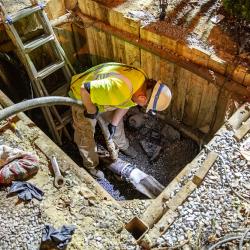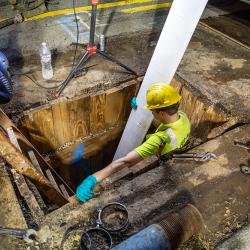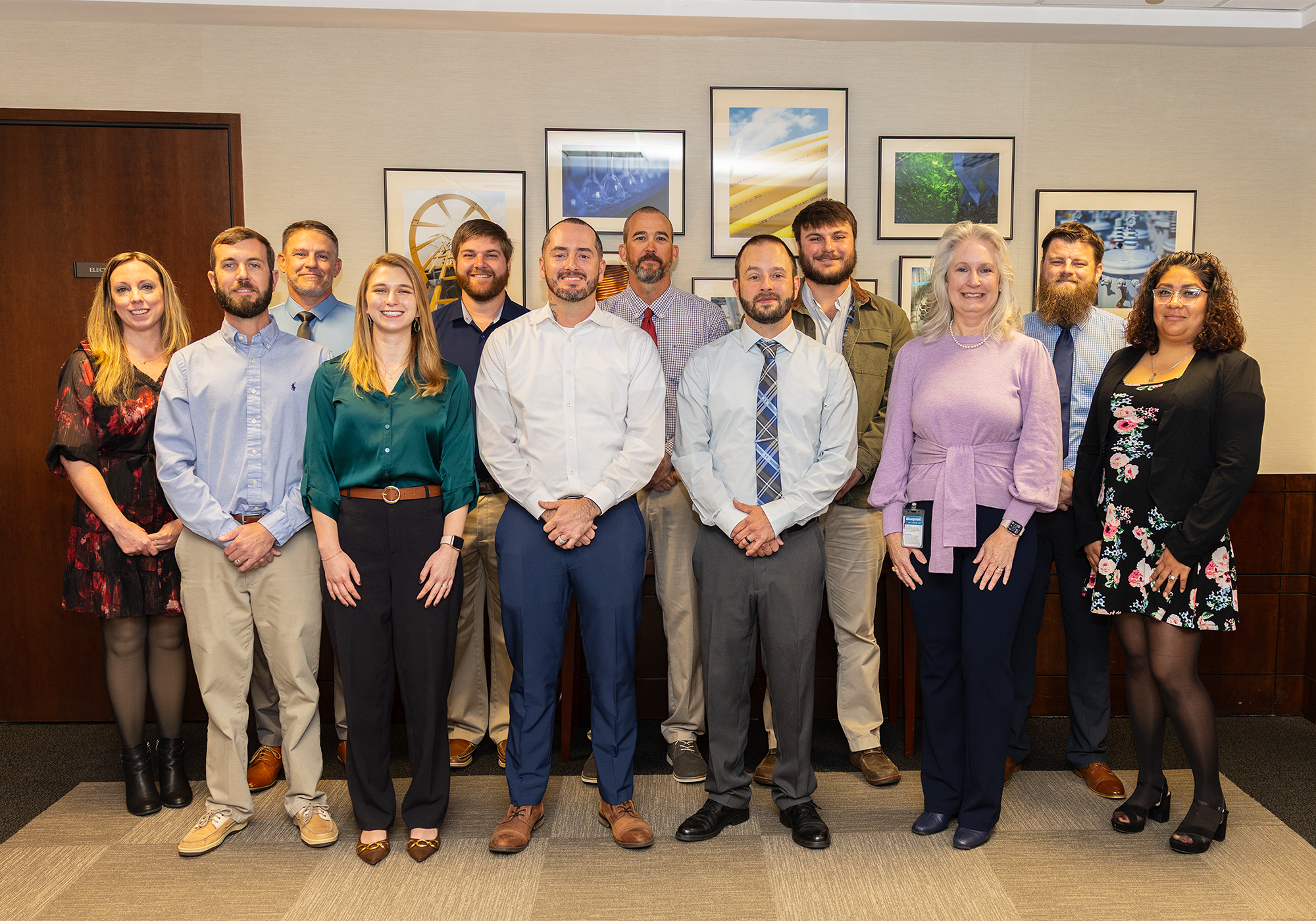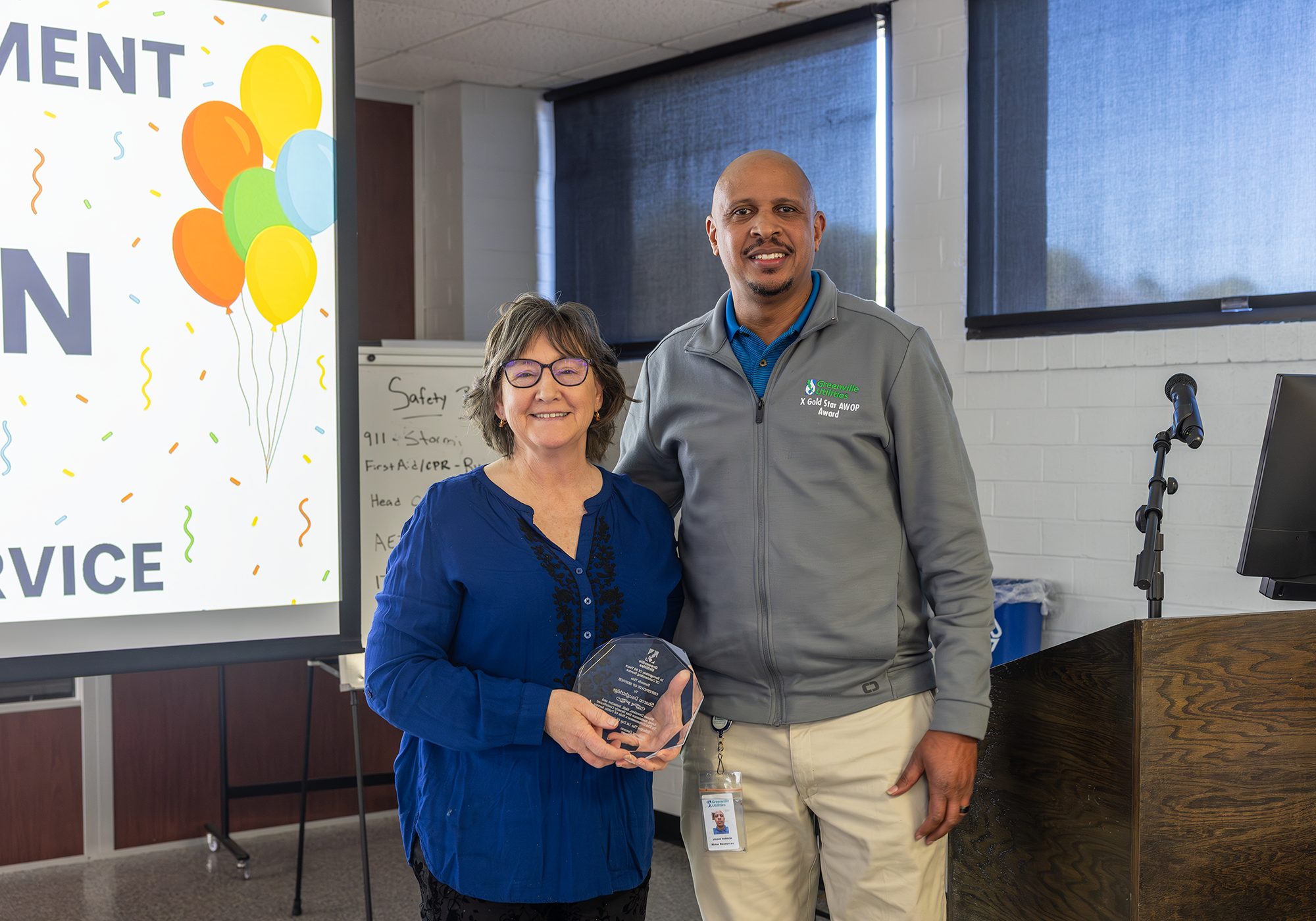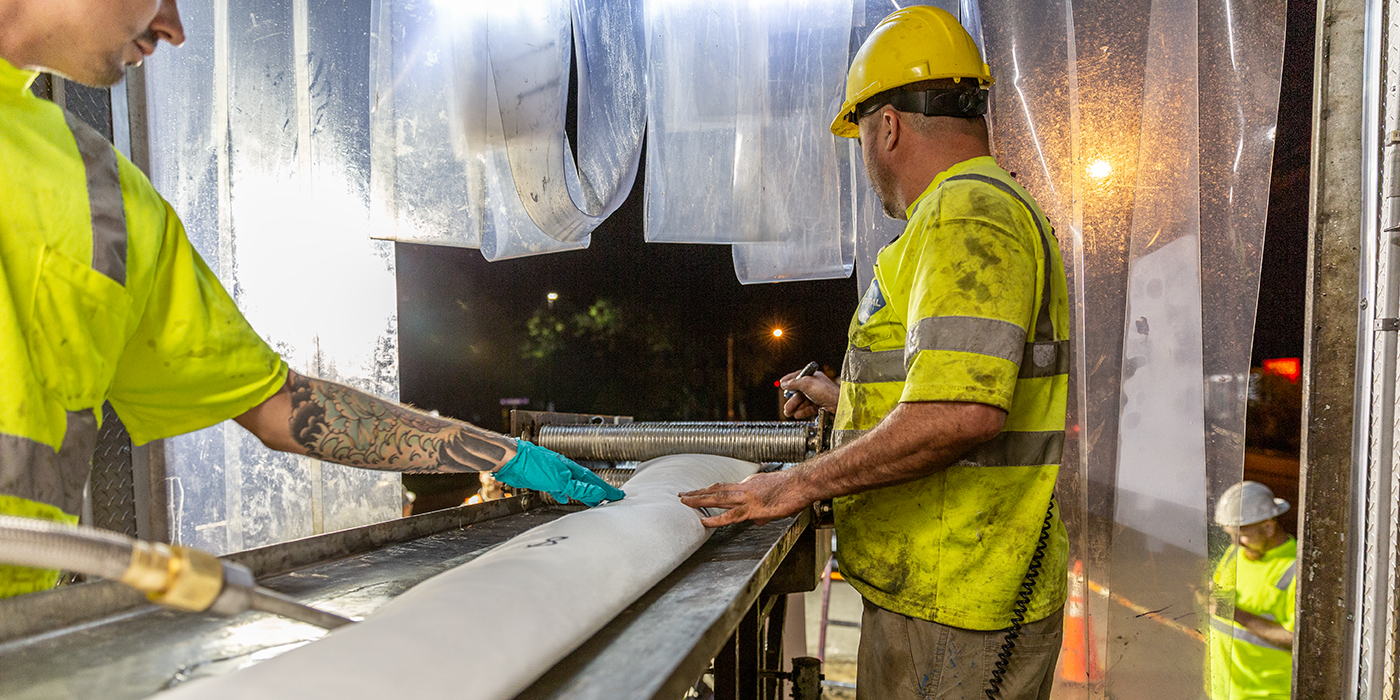
Water quality is a top priority for our Water Resources Department. Work performed at the Water Treatment Plant is just one step in the process. Delivering that quality water is an entirely different process involving 631 miles of water mains. Over the past three months, approximately 2,700 feet of those mains received an upgrade.
In 2016, Water Resources staff developed a water main rehabilitation program to ensure the continued reliability of GUC’s water distribution system. Phase one involved assessing and prioritizing the rehabilitation needs within the system. Many of the water mains near the Uptown Greenville area were identified as the first section in need of attention. Those mains are older, cast-iron pipes.
Cast iron was used in older water systems because of its durability. However, through time, corrosion roughens the inside of the pipes, reducing both the flow and quality of water. There are many ways to fix pipes, one of which is rehabilitating them instead of replacing them.
“Our primary goal is to improve water quality,” said Water Resources Systems Engineer Scott Farmer. “With these cast iron mains, we went with a trenchless technology method, avoiding the need to dig up the old mains and replace them.”
The method used involved contractors inserting a new six-inch lining into the pipe. The lining is made of a composite material that gives the pipe a new structure. Part of this process also involves removing tuberculation, a formation inside the mains that can reduce water flow and pressure over time.
Communities have been using various methods of lining successfully for about 40 years, and this method is expected to last 50 years.
“This project is the first water main rehabilitation we have performed,” said Scott. “It’s also the first of its kind to be funded through a state revolving fund.”
The rehabilitated mains run along 10th Street between College Hill Drive and Forbes Street. During the three-month process, an above-ground bypass water system was installed to keep customers in that area in service.

